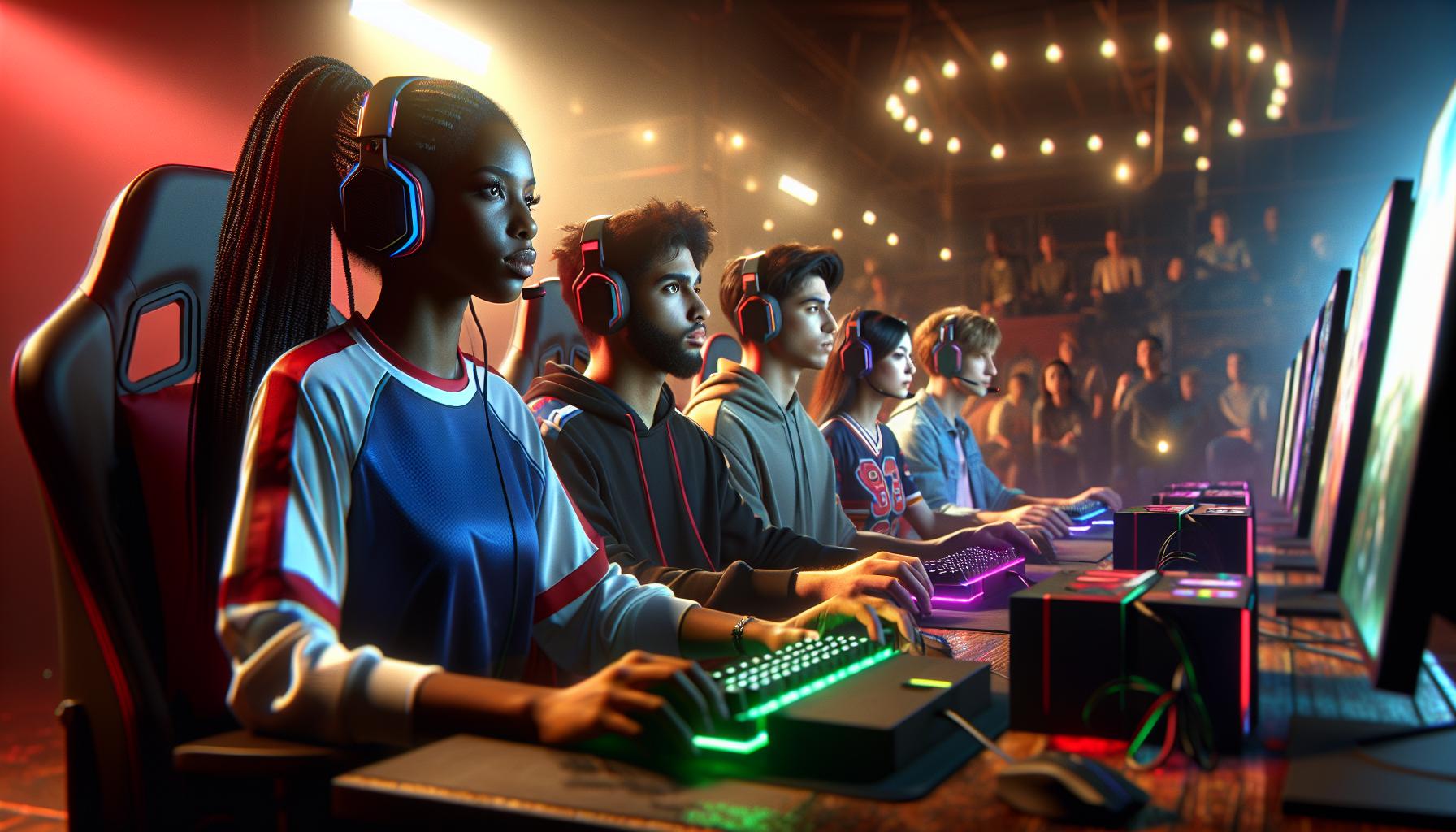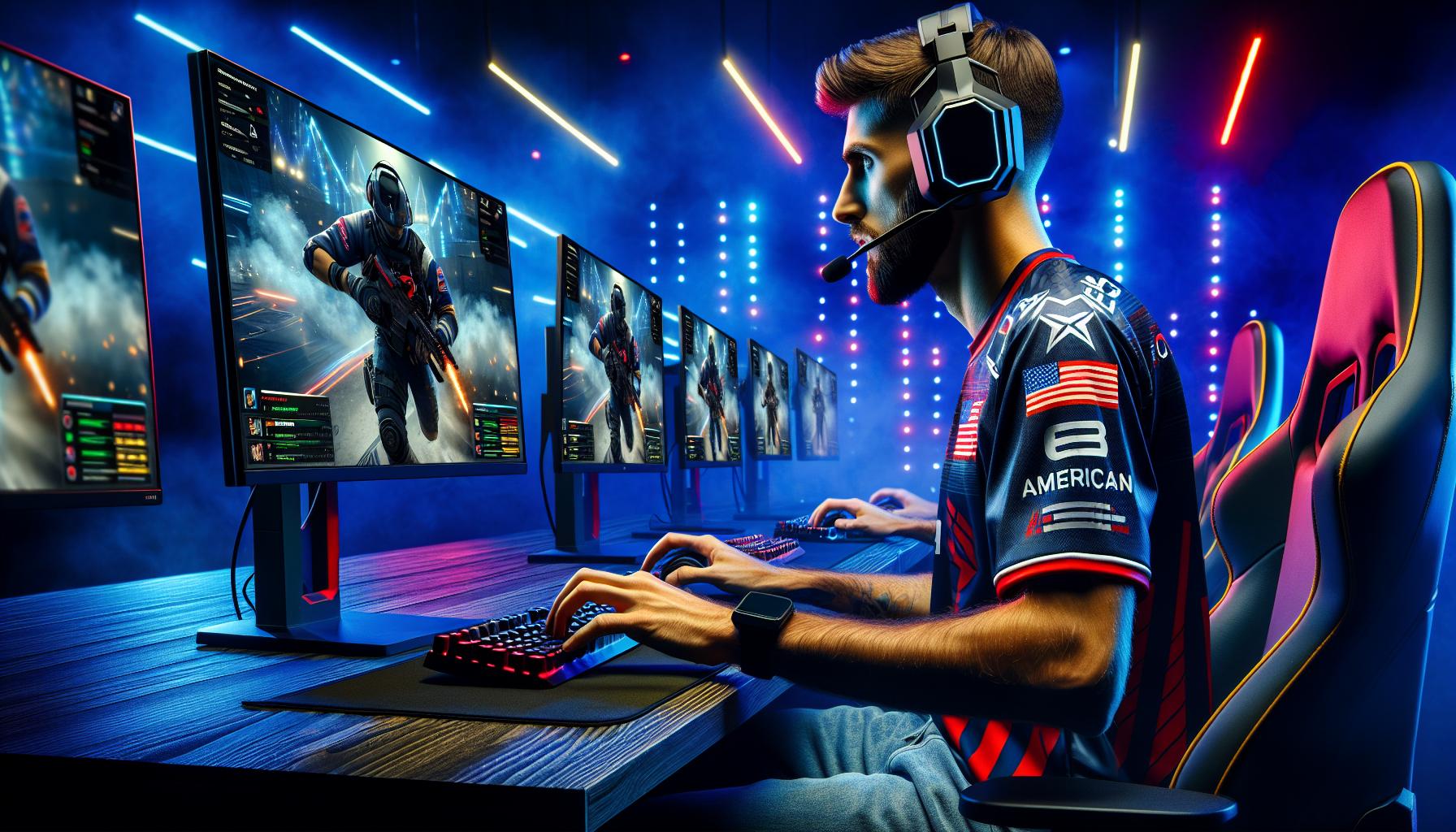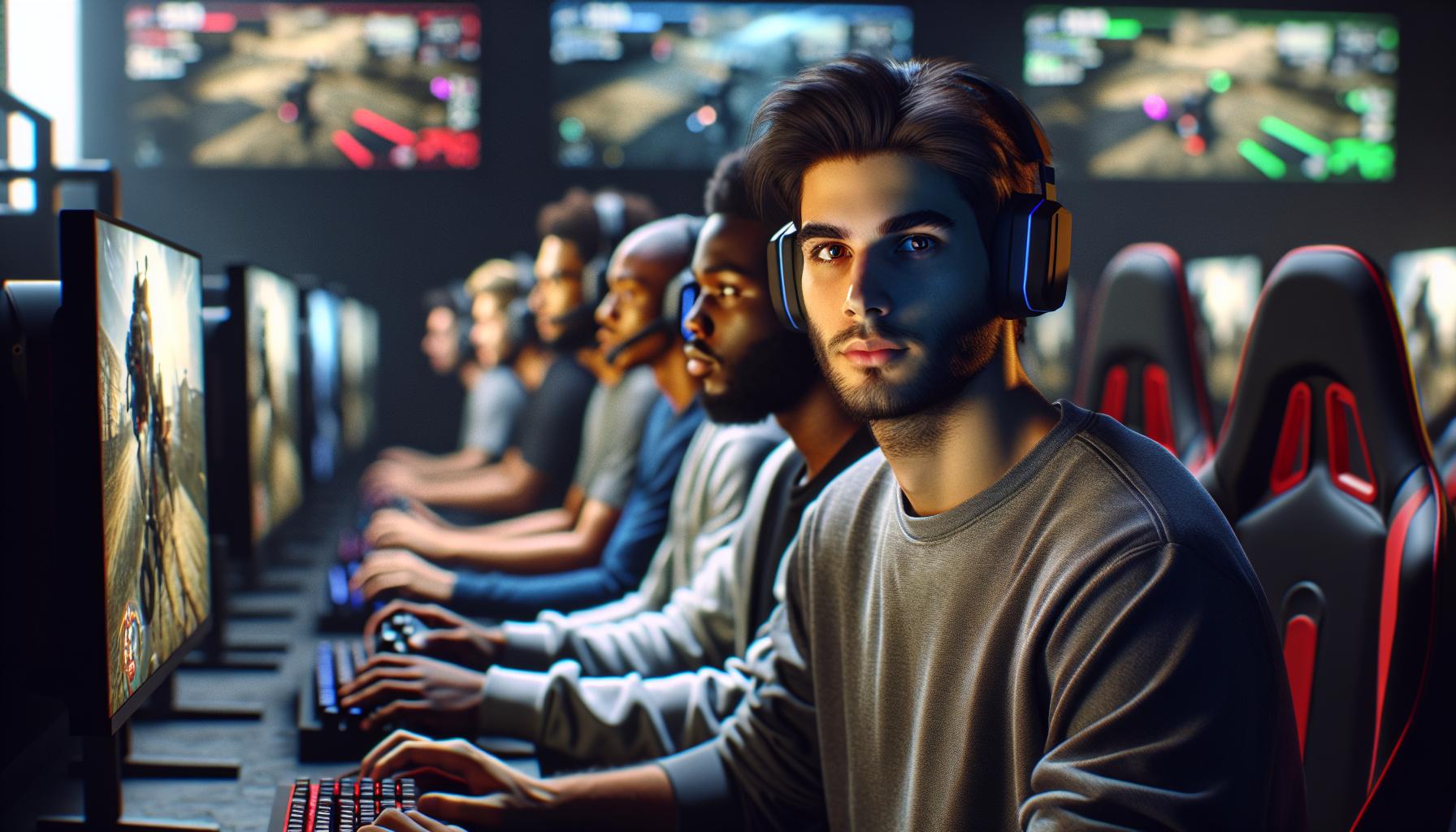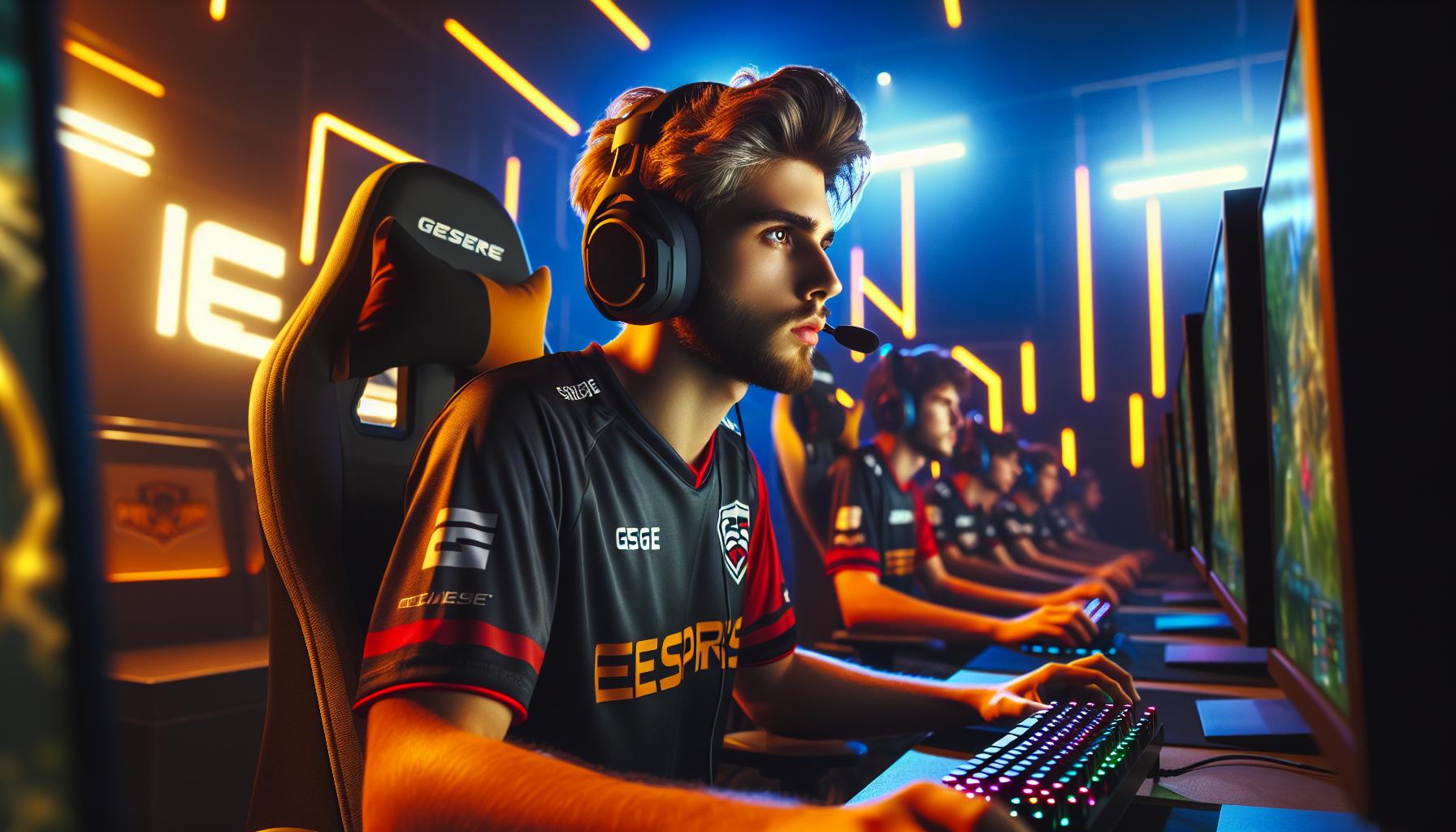As I dive into the world of competitive gaming, I can’t help but wonder: should esports really be classified as a sport? With millions of fans and players worldwide, esports has exploded in popularity, drawing attention from traditional sports leagues and sponsors alike. Yet, the debate continues to rage among purists who argue that sports should involve physical exertion, while others see the skill and strategy in esports as worthy of the title.
The lines between traditional sports and esports are becoming increasingly blurred. Gamers train for hours, honing their skills and competing for glory, just like athletes in any physical sport. As I explore this topic, I’ll unpack the arguments on both sides, shedding light on what truly defines a sport in today’s digital age.
Key Takeaways
- Esports is increasingly being recognized as a legitimate sport due to its competitive nature, skill development, and intricate strategies, paralleling traditional sports’ characteristics.
- While traditional definitions of sports emphasize physical exertion, esports highlights the importance of mental acuity, hand-eye coordination, and intense concentration.
- The historical growth of esports, from its early arcade competitions to global phenomena, underscores its evolution and mainstream acceptance as a competitive activity.
- The diverse genres of esports—such as FPS, MOBA, RTS, sports simulation, and fighting games—demonstrate its widespread appeal and rich competitive landscape.
- Media coverage and inclusion in competitive events, like the Asian Games, reflect a growing recognition of esports in the traditional sports domain and challenge conventional definitions of sports.
- The ongoing debate about whether esports qualifies as a sport is influenced by varying perspectives on the definitions of physicality, competition, and skill.
Should Esports be Considered a Sport
The term “sport” typically encompasses physical activities that involve skill, competition, and organization. Various definitions exist, but common criteria include physical exertion, competitive elements, and structured rules.
- Physical Exertion: Traditional sports require physical movements like running, jumping, or swimming. Some argue this aspect is essential for classification as a sport.
- Competition: Sports involve competing against others or oneself to achieve a goal. Outcomes are often determined based on points, scores, or times.
- Organized Structure: Sports operate under a set of established rules and regulations. This structure helps maintain fairness and consistency during competitions.
- Skill Development: Athletes invest time in improving techniques and strategies. Mastery of skills typically distinguishes sports from mere recreational activities.
- Spectatorship: Many sports attract audiences, both live and online, enhancing their recognition and legitimacy. This component connects fans to the activities, cultivating a culture around the sport.
Understanding these components provides a framework for evaluating whether esports fits within this definition. The debate surrounding esports includes discussions about the necessity of physical exertion versus the mental agility, strategy, and skill involved in competitive gaming.
Overview Of Esports

Esports, or electronic sports, has transformed from a niche hobby into a global phenomenon. Its popularity continues to rise, attracting millions of dedicated fans and substantial investments from various sectors.
History Of Esports
Esports dates back to the early 1970s, following the release of arcade games like Pong. The first formal competition occurred in 1980 with the Space Invaders Championship, drawing over 10,000 participants. In the late 1990s and early 2000s, online multiplayer games like StarCraft and Counter-Strike gained traction and established esports as a competitive platform. Tournaments emerged, with significant events like the 2000 World Cyber Games solidifying the structure. By the 2010s, massive esports organizations, such as Team Liquid and Fnatic, flourished, bringing professional gaming to mainstream audiences. Today, esports features a wide range of games and professional leagues, positioning itself as a staple in the entertainment industry.
Types Of Esports Games
Esports encompasses various genres, each requiring unique skills and strategies.
- First-Person Shooters (FPS)
FPS games focus on quick reflexes and tactical teamwork. Titles like Call of Duty and Counter-Strike: Global Offensive dominate this category, showcasing competitive tournaments worldwide. - Multiplayer Online Battle Arena (MOBA)
MOBA games, such as League of Legends and Dota 2, emphasize teamwork and strategy. Players control unique characters and must outmaneuver opponents to secure victory. - Real-Time Strategy (RTS)
RTS games like StarCraft II require players to gather resources, build armies, and outsmart rivals in real-time. Strategic positioning and resource management play critical roles. - Sports Simulation
Sports simulations, such as FIFA and NBA 2K, replicate traditional sports gameplay. Players compete as their favorite teams, blending entertainment with genuine sporting experiences. - Fighting Games
Fighting games like Street Fighter and Super Smash Bros. test players’ skills in one-on-one combat. Technique and reaction times are crucial in these high-stakes competitions.
These game types illustrate the diverse landscape of esports, demonstrating its appeal across various player demographics and interests.
Arguments For Esports As A Sport

Esports encompasses a range of complexities that align it with traditional sports, particularly regarding skill and strategy. The ongoing debate highlights compelling arguments for recognizing esports as a legitimate sport.
Skill And Strategy In Esports
Esports demands exceptional skill development, akin to traditional sports. Players invest hours honing reflexes, hand-eye coordination, and game-specific techniques. Competitive gaming often requires intricate strategies, mirroring the tactical planning seen in sports like football or basketball. Teams analyze opponents, formulate game plans, and adapt in real-time to achieve victory. Many esports athletes undergo rigorous training regimens and participate in extensive practice sessions, showcasing dedication similar to that of top athletes in conventional sports.
Physical And Mental Requirements
Esports involves significant physical and mental exertion. While it may not require the same level of physical fitness as basketball or soccer, esports demands intense focus and coordination, engaging players’ fine motor skills. Mental stamina also plays a critical role; tournaments can extend for hours, testing players’ concentration and decision-making abilities under pressure. The combination of lightning-fast reactions and strategic thinking creates a unique set of challenges, supporting the argument for esports classification as a sport due to these rigorous demands.
Arguments Against Esports As A Sport

Critics argue against classifying esports as a sport based on several criteria, focusing mainly on physical activity and traditional definitions of sports.
Lack Of Physical Activity
Esports involves limited physical exertion compared to traditional sports. Players typically engage in hours of gaming from a seated position, which contrasts sharply with activities that necessitate running, jumping, or similar physical movements. This lack of physical activity raises questions about whether esports meet the established criteria for sports. Proponents of this view assert that the absence of significant aerobic engagement undermines the classification. While mental acuity plays a role in esports, many contend that a sport should emphasize physical skills alongside mental ones.
Traditional Definitions Of Sport
Most definitions of sports emphasize competition, physical activity, and skill. Traditional sports require athletes to demonstrate notable physical prowess, maintain strict training regimens, and participate in organized competitions. Critics argue that esports don’t align with these definitions, lacking standardized rules, field dimensions, and the need for robust physical conditioning. They suggest that the established nature of sports revolves around physicality, making it challenging to integrate esports into this framework. This traditional viewpoint reinforces the notion that esports, despite their competitive nature, don’t qualify as sports within the conventional context.
Current Perception And Acceptance
The perception of esports as a legitimate sport varies greatly among fans, experts, and traditional sports organizations. As its popularity increases, so does the interest in how it fits into the broader sports landscape.
Esports In The Media
Esports has gained significant media coverage over the past decade. Major news outlets like ESPN and CNN regularly report on esports events, player achievements, and industry developments. Streaming platforms such as Twitch provide a space for millions to watch live competitions and interact with participants. Some traditional sports broadcasters now include esports in their programming, showcasing the increase in acceptance. High-profile events, like the League of Legends World Championship, attract millions of viewers, further cementing esports as a mainstream phenomenon. This media presence generates dialogues around its classification and legitimacy.
Inclusion In Competitive Events
Esports has started to secure a place within competitive events like the Asian Games, where it appeared as a medal event in 2018. This inclusion indicates a growing acknowledgment of esports on an international stage. Additionally, traditional sports organizations, including the NBA and FIFA, have sought to engage with esports through their own leagues, such as the NBA 2K League. This collaboration signifies a bridging of the gap between traditional and digital sports, enhancing the visibility and acceptance of esports as a valid competitor in the sports arena. Such events challenge preconceived notions of what constitutes a sport, propelling ongoing discussions about its classification.
Esports Embodies Many Qualities
The debate over whether esports should be classified as a sport is far from settled. As I reflect on the arguments presented, it’s clear that esports embodies many qualities we associate with traditional sports. The skill and strategy involved in competitive gaming demand dedication and mental agility that rival physical sports.
While some may argue that the lack of physical exertion disqualifies esports from this classification, the growing recognition and acceptance within the sports community suggest otherwise. The future of esports is bright and its potential to redefine what we consider a sport is exciting. As this digital phenomenon continues to evolve, it’s crucial to keep an open mind about its place in the broader landscape of competitive activities.
